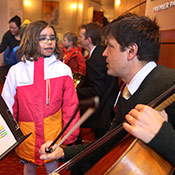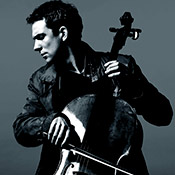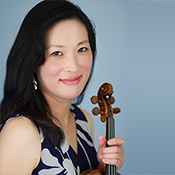
Stargazing with Peter Szczepanek
PUBLISHED
Tagged Under: Cello, MSO Musicians, Musician
Peter Szczepanek grew up in a low-income, single-parent household. His first exposure to classical music was a class field trip to hear the Chicago Symphony. He loved what he heard, taught himself to play piano at school, and later began studying cello on a school instrument.That kind of support started him on the path to his current position in the Milwaukee Symphony’s cello section. He hopes that the MSO, and society in general, can replicate it for other kids who lack privilege – including the privilege that he had of white skin.
“My values are very much affected by my background,” Szczepanek said. “I believe in a strong social net, where someone helps you build for your future.” Even before the death of George Floyd at the hands of Minneapolis police in May, the MSO had begun to examine its equity, diversity and inclusion, both through the organization and an independent effort organized by musicians. Szczepanek said his own success was possible because teachers took a personal interest in him, and an orchestra’s success requires interdependence. “We’re born to rely on each other and we thrive on that,” he said. “I want everyone to have those experiences,” particularly children who might not currently feel a connection to classical music.
To build that inclusive future, with opportunity shared regardless of race or class, “we eventually have to have a conversation,” he said. “I still believe in the potential of our systems to be fixed. All of our lives are like the voicing of a chord. It can still be a C-E-G, but if you play one note a little louder or in a different octave, you change the feel of it. And we’re always being forced to do that with our lives.”
Szczepanek’s life took one very unusual path for a professional orchestra musician: he never attended college. As a new high school graduate, he got into the Chicago Civic Orchestra, the longtime training program sponsored by the Chicago Symphony, and studied with two CSO cellists. He was soon getting enough freelance work to make a living, and he lived with his mother for an extra year in order to afford a professional-quality cello.
At age 21, he joined the Grant Park Symphony, a summer institution in Chicago. Eventually, he also got on the substitute lists for the Chicago and Milwaukee symphonies before winning a full-time job with the MSO in 1999.
Szczepanek has always continued to spend his summers playing in Grant Park, but because the pandemic wiped out the 2020 season, “this has been my first ever summer in Milwaukee.” But that gave him more time to spend on home and garden projects with his partner, MSO principal cellist Susan Babini, at their house in western Milwaukee.
He also has time for another hobby, stargazing, but opportunities for good views within the city are somewhat limited. “Light pollution doesn’t affect things like planets,” he said, “and I can see more late at night when the neighbors’ security lights are off. But the faint fuzzies are harder to find.”
Does it get routine to look at the same constellations? “No,” he says quickly. “Within each constellation, there are so many objects to look at – double stars, nebulae, galaxies, there’s always something new to explore. It’s like how deep you can go into a piece of music.” Similarly with music, “it’s a rare day when I don’t play something” during furlough, he said, even revisiting old etude books.
Like many musicians this year, he also has plenty of time to think about the big picture. “What are our roles in life?” he said. “I’m a cellist in a great orchestra that I’m proud to be part of, but we’re also citizens of the United States and of the world, and it’s a real interesting time to contemplate those things. Susan and I every day count our blessings. There’s so much suffering in the world, and it’s really challenging to try to grasp the struggle. But we have each other, we have some savings for the short term, we have great friends, and we’re looking forward to the future of the orchestra.”
And that future, he thinks, will need to be more inclusive. “A large part of the population, its voice hasn’t been listened to,” he said. Black composers overlooked in past generations represent “a whole world of brilliant unexplored music out there. It’s easy for us to live in bubbles, but we have to try to make sense of it. As artists, how do we speak up? As scary as this time can be, it’s also fascinating. We’re living through history.”



